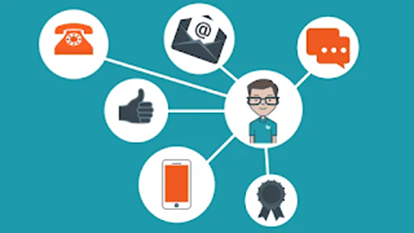Introduction
In today's highly competitive business landscape, customer retention has become more critical than ever. As the saying goes, "It's easier to keep an existing customer than to find a new one." Businesses across industries understand the importance of retaining customers and are constantly seeking innovative strategies to keep them satisfied.
Personalization and Customization
One-size-fits-all approaches no longer work in the era of personalized experiences. Customers appreciate when businesses go the extra mile to understand their individual needs and preferences. By personalizing products, services, and communications, businesses can create a sense of exclusivity and make customers feel valued. This can include personalized recommendations, tailored offers, and targeted marketing campaigns based on customers' past purchases and behavior.
Enhanced Customer Support:
Excellent customer support can make all the difference when it comes to retaining customers. Beyond the traditional methods of phone or email support, businesses are now incorporating innovative approaches to provide assistance. Live chat support, social media interactions, and chatbots are gaining popularity because they provide real-time solutions and allow businesses to address customer queries promptly. Additionally, integrating self-help options such as comprehensive FAQs and video tutorials can empower customers and reduce the need for direct support.
Loyalty Programs:
Traditional loyalty programs are being reinvented with innovative features to adapt to changing customer preferences. Today's loyalty programs go beyond simple point systems and offer customers tangible value. Businesses are introducing tiered programs with exclusive perks, personalized rewards, and unexpected surprises. Additionally, social gamification elements such as leaderboards and challenges are being incorporated to create a sense of competition and excitement among customers, further encouraging their loyalty.

Proactive Relationship Management:
Instead of waiting for customers to reach out, businesses are now proactively managing customer relationships. This involves reaching out to customers before problems arise, anticipating their needs, and providing solutions in advance. For example, a subscription-based service might send a reminder email a few days before a customer's credit card is set to expire, ensuring a seamless continuation of the service. By actively managing relationships, businesses can build trust and foster long-term loyalty.
Continuous Feedback Loop:
Customer feedback is a goldmine of insight that businesses can leverage to improve their products and services. Innovative businesses are implementing various channels to gather feedback continuously. This can include feedback forms, surveys, social media listening, and online communities. Analyzing this feedback in real-time allows businesses to identify pain points and make iterative improvements. Additionally, businesses are now involving customers in product development processes, creating a sense of ownership and loyalty.
Emotional Connection:
Customers are more likely to stay loyal to a brand when they feel emotionally connected. Businesses are now aiming to evoke positive emotions through their products, services, and marketing campaigns. Storytelling and brand narratives have become essential components of customer retention strategies. By creating stories that resonate with customers' values and emotions, businesses can forge a deep connection, making customers feel like they are part of a larger community.
Continuous Innovation:
To stay ahead in the market, businesses must continuously innovate and evolve their products and services. Innovation, however, doesn't end at creating new offerings. Businesses also need to innovate in their customer retention strategies. Constantly exploring new technologies, industry trends, and customer preferences allows businesses to stay relevant and keep customers engaged. Innovative businesses stay proactive in adapting to changes, whether it's through incorporating new features, exploring new distribution channels, or embracing sustainability and social responsibility.
Conclusion :
In a world where customer preferences and market dynamics are constantly changing, businesses must continually innovate their customer retention strategies. The strategies mentioned above are just a few examples of how companies are adapting to this evolving landscape. By personalizing experiences, enhancing customer support, introducing innovative loyalty programs, providing a seamless omnichannel experience, proactively managing relationships, fostering continuous feedback, establishing emotional connections, and embracing continuous innovation, businesses can create a strong foundation for customer loyalty and retention. Remember, happy customers can become loyal advocates for your brand, leading to increased profitability and sustainable growth in the long run.

